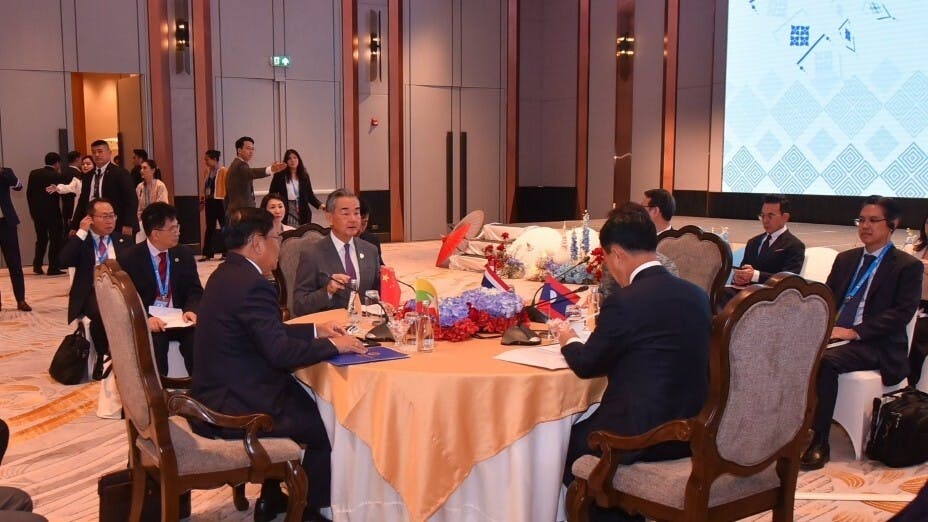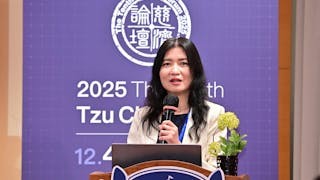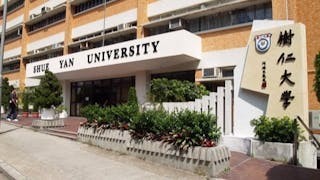不久前,中國外長王毅對東南亞進行了為期4天的訪問,突顯了中國睦鄰外交的實踐。
首次訪問緬甸 支持重新大選
王毅首次訪問緬甸並表示,中方支持緬甸政府重新舉行大選,讓緬甸重啟「民主轉型」,體現了中方尊重緬甸和平政治過渡、反對任何外國干預的姿態。昂山素姬政府倒台後,緬甸軍政府遇到了合法性問題,特別是與北部地區少數民族武裝的激烈戰鬥。有些民族武裝是由華裔組成的,他們也支持中國。儘管中國在緬甸軍政府與一些少數民族武裝之間的衝突中進行調解,但最近停火協議在6月份被打破,一些叛軍佔領了撣邦臘戌的一個軍事指揮所,那裏的政府軍與漢族為主的果敢同盟軍(據一些傳言稱,他們從神秘的未知外部勢力那裏獲得武器)之間發生了暴力衝突,破壞了邊境安全,一些在中緬邊境的中國人被緬甸發射的砲彈無辜炸傷。
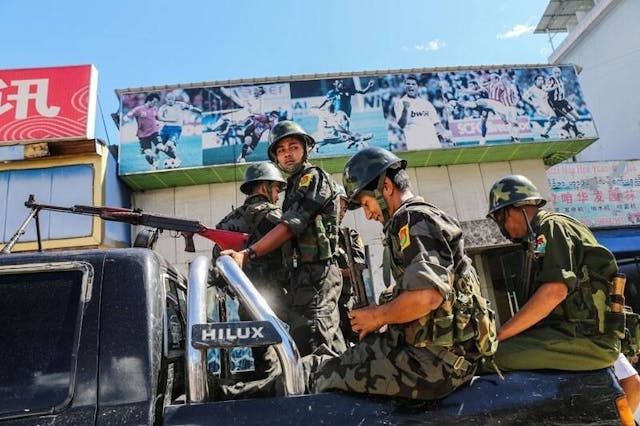
緬甸軍政府未能控制整個國家,網絡賭博、電信詐騙集團和人口走私依然存在。近日,軍方搗破電信詐騙集團,有未證實的傳言稱,軍隊中少數腐販分子支持少數電信詐騙集團頭目,詐騙了大批中國內地人。
經過中方的外交游說和努力,緬甸軍政府搗毀了電信犯罪集團,並將數千名犯罪集團的中方組織者、參與者和受害者引渡回國,這是中緬共同打擊跨境犯罪的勝利。
8月16日,王毅會見緬甸國家和平與發展委員會前主席丹瑞。後者表示,中國是緬甸的兄弟和友好鄰邦,希望中方繼續幫助緬甸防止外部干擾、維護國內穩定。
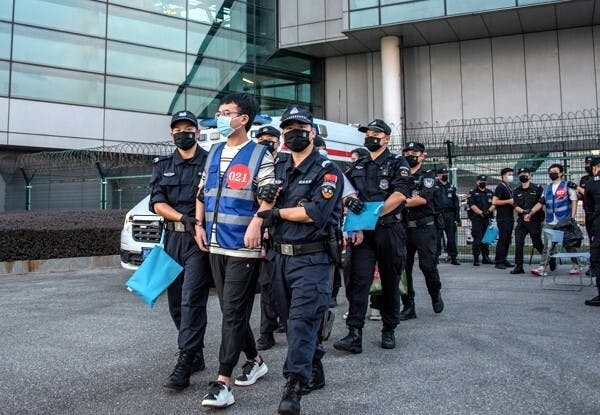
王毅表示,中方始終將發展中緬關係放在周邊外交重要位置,願同緬方共同努力,推動中緬命運共同體建設取得更多務實成果。中方願與緬方深化一帶一路合作,興建中緬經濟走廊,保障中緬油氣管道計劃順利營運,打擊跨國犯罪,進行農業合作。
丹瑞強調緬方支持一個中國原則,支持中國一帶一路倡議,歡迎人類命運共同體理念,表示將與中方共同打擊跨國犯罪,維護邊境安全。
王毅此次訪緬,不僅是繼去年中國特使鄧錫軍會見緬甸軍政府首腦敏昂萊之後,也是繼中國新任駐緬大使馬珈抵達緬甸之後。據報道,中國向遭受西方制裁的軍政府提供武器,但為了加強和深化各種合作,維護邊境安全符合北京的利益。王毅此訪是及時且必要的。
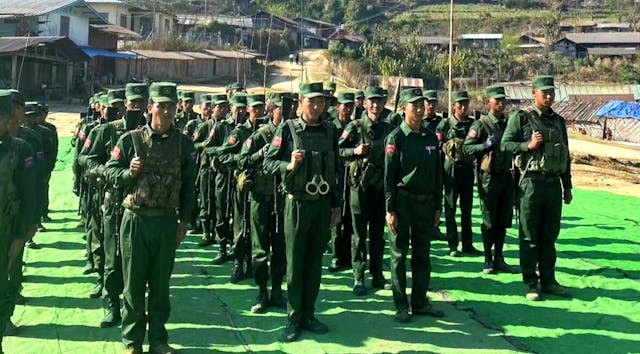
全球安全倡議 獲緬泰等國回應
王毅之後前往泰國,在清邁會見了老撾副總理兼外長沙倫賽。隨着中老鐵路運力屢創新高,雙邊貿易額持續攀升。王毅表示,中方支持老撾擔任東協輪值主席國,渴望看到老撾提升地區和國際影響力,渴望加速中老鐵路沿線基礎建設,深化高層合作。
沙倫賽讚賞中方為推動緬甸北部地區和談所做的努力,邊境和平和區域穩定是老中兩國的共同利益。
瀾滄江─湄公河合作第九次外長會期間,王毅不僅與沙倫賽,還與緬甸外長丹穗、泰國外交部次長艾斯麗進行非正式磋商。各方一致認為,各方將共同打擊網絡賭博、電信詐騙、人口走私等影響廣大人民群眾人身安全和財產安全的跨國犯罪活動。王毅表示,中國提出的全球安全倡議得到緬甸、老撾、泰國等國的熱烈回應。自2023年以來,在這些國家的共同努力下,已有約5萬名跨國犯罪者被逮捕。

瀾湄合作成立於2016年,由中國、柬埔寨、老撾、緬甸、泰國和越南參與,旨在加強該地區的互聯互通、產能、社會經濟發展、扶貧、水資源和農業管理。
王毅也表示,中緬泰老四國需要織緊邊境管控網,守住各國邊界,管好重要口岸,徹底封堵不法分子非法越境通道,應盡快召開瀾湄執法安全合作部長級會議,調動各方資源,整合人力、情報、技術、設備,協調四國聯合打擊行動,全面提升跨國合作效率。
王毅此訪具有重要政治意義。首先,中國的睦鄰外交可以看作是為了反駁一些敵視中國的鷹派外國人,在沒有深入了解中國動盪歷史的情況下,宣揚所謂「中國威脅」的錯誤認知。
透過睦鄰外交 創造和平繁榮
其次,瀾湄地區對於落實中國的一帶一路倡議、全球安全倡議、全球文明倡議和人類命運共同體,具有重要的地緣政治和經濟戰略意義。中國將區域安全問題與基礎建設、社會經濟可持續發展結合起來,透過睦鄰外交,為東南亞創造和平、經濟繁榮的環境。
以中泰關係為例,中國是泰國最大的貿易夥伴,泰國為中國電動車提供了龐大的市場。到2023年,中國遊客數量達到350萬人次,隨着兩國互免簽證,這一數字預計還會增加。儘管泰國傳統上是美國的盟友,但中國為了平衡美國的影響力,一直透過睦鄰外交拉攏泰國的支持。
第三,中方精準定位聯合打擊跨國犯罪,使其他問題能夠更加順利、系統地解決,包括具體的旅遊和簽證安排、相互投資、中國投資者的人身財產安全、最大限度地減少跨境網絡賭博、跨境賭場、人口走私、販毒和電信詐騙的中國受害者。
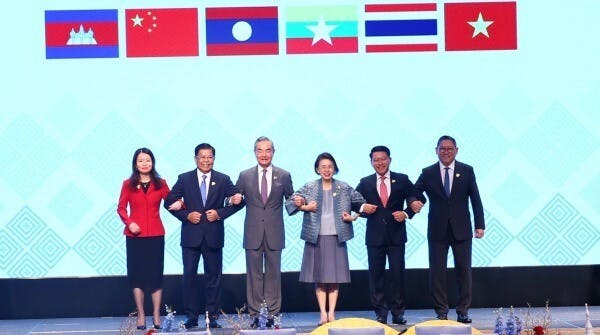
第四,王毅訪華之際,中國譴責菲律賓在南海不斷挑釁,例如菲律賓空軍一架NC-212巡邏機進入中國黃岩島上空。客觀地講,自2022年以來,菲律賓政府在與中國的領土爭端的問題上,轉向軍事上更加鷹派的立場。在意識形態政治威脅全球和平的新冷戰年代,小馬可斯政府如何克制本身的鷹派成分,使經濟實用主義與和平能夠繼續戰勝極端民族主義狂熱,還有待觀察。王毅對東南亞國家的和平舉動和睦鄰外交,或許間接或不經意地向菲律賓領導人表明,中國仍然是一個愛好和平的國家。
總的來說,王毅對東南亞的訪問揭櫫了中國睦鄰外交的實踐,聯合打擊跨境犯罪已成為更緊密的社會經濟和可持續發展、基礎建設、相互投資,擴大旅遊,人文和教育交流更加密切。從更廣泛的角度來看,中國的一帶一路倡議、全球安全倡議和人類共同未來倡議,可以有望在東南亞取得突破。王毅東南亞之行及睦鄰外交的深層意義和影響,需要正確和客觀的認識。
China’s good neighbourhood diplomacy: The visit of Wang Yi to Southeast Asia
The recent four-day visit of Chinese Foreign Minister Wang Yi to Southeast Asia has underscored the implementation of China’s good neighbour’s diplomacy.
Wang Yi firstly visited Myanmar and remarked that China supports its government’s plan to hold fresh elections and return the country to a “democratic transition” – a gesture showing China’s respect to Myanmar’s peaceful political transition and objection to any foreign intervention. After the removal of Aung San Suu Kyi government, the Myanmar military regime has encountered a legitimacy problem, especially in light of the fierce fighting with ethnic minority armed forces in the northern regions. Some of the ethnic armed forces are composed of Hans Chinese who are also supportive of China. Although China mediated in the conflicts between the Myanmar military regime and some ethnic armed forces, the ceasefire has recently been broken in June as some rebels captured a military command post in Lashio in the Shan state, where the violent conflicts between the military and the Hans-dominated Kokang forces (who according to some rumours received weapons from mysteriously unknown external forces) have undermined the border security as some Chinese in mainland China were wounded innocently by shells fired from Myanmar.
The military junta in Myanmar has failed to control the whole country as online gambling, telecom fraud syndicates and human smuggling persisted. Recently the military has smashed the telecommunication fraud syndicates amid unsubstantiated rumours that a minority of rotten elements in the military supported a few kingpins of telecom fraud syndicates, which deceived a lot of mainland Chinese in China.
After the diplomatic lobbying and efforts from China, the Myanmar government dismantled the telecom syndicates and extradited thousands of the Chinese organizers, participants and victims of these criminal syndicates back to China – a triumph of the joint Sino-Myanmar combat against cross-border crime.
On August 16, Wang Yi met the former chair of Myanmar’s State Peace and Development Council, U Than Swe, who said China is Myanmar’s brother and friendly neighbour, and who hoped that China would continue to help Myanmar prevent external interference and maintain domestic stability.
Wang Yi said that the Sino-Myanmar brotherly friendship is important to China’s neighbourhood diplomacy, and that China upholds the five principles of peaceful coexistence with Myanmar on a shared future. He added that China is keen to deepen the Belt and Road cooperation with Myanmar, develop the China-Myanmar Economic Corridor, ensure the smooth operation of the Sino-Myanmar oil and gas pipeline project, combat cross-border crime, and to collaborate in agricultural development and people-to-people exchange.
U Than Swe emphasized Myanmar’s support of the one-China principle, backed up China’s Belt and Road Initiative and welcomed the idea of having a shared future for mankind, and he pledged to work with China to safeguard border security through the joint combat against cross-border crime.
Wang Yi’s visit to Myanmar followed not only the trip of Chinese special envoy Deng Xijun’s trip to meet Myanmar’s junta chief Min Aung Hlaing last year, but also the arrival of new Chinese ambassador Ma Jia in Myanmar. China has reportedly supplied weapons to the military junta which encounters Western sanctions, but it is in Beijing’s interest to maintain border security for the sake of enhancing and deepening all kinds of cooperation. As such, Wang Yi’s visit was timely and necessary.
Wang Yi also went to Thailand where he met Laos deputy prime minister and foreign minister Saleumxay Kommasith in Chiang Mai. The Sino-Laos trade has risen with the full capacity of the Sino-Laotian railway. Wang Yi remarked that China supports Laos to be a rotating chair of ASEAN, that Beijing is keen to see Laos enhancing its regional and international influence, and that China is eager to accelerate infrastructure development along the Sino-Laos railway, to deepen high-level and people-to-people exchange and to fight cross-border crime.
Saleumxay expressed his appreciation to China for promoting peace talks in Myanmar’s northern regions as border peace and regional stability are the common interests of Laos and China.
During the 9th Lancang-Mekong Cooperation (LMC) Foreign Ministers Meeting, Wang Yi conducted informal discussion with not only Saleumxay but also Myanmar foreign minister U Than Swe and Thailand foreign affairs permanent secretary Eksiri Pintaruchi. They came to a consensus that all sides would combat cross-border crimes, including online gambling, telecom fraud and human smuggling, which have affected the personal safety and properties of ordinary people. China’s Global Security Initiative, according to Wang Yi, secured the warm responses from Myanmar, Laos and Thailand. Since 2023, about 50,000 people who were involved in cross-border crimes have been arrested by the joint efforts of these countries.
The LMC was formed in 2016 with the participation of China, Cambodia, Laos, Myanmar, Thailand and Vietnam to strengthen connectivity, production capacity, socio-economic development, poverty alleviation, and water resources and agricultural management in the region.
Wang Yi also said that the borders of China, Myanmar, Thailand and Laos have to be guarded while criminal intelligence will have to be shared together through a ministerial-level law enforcement and security meeting in the Lancang-Mekong region. Technology, equipment and judicial cooperation will have to be utilized and strengthened to combat cross-border crime.
Wang Yi’s visit was politically significant.
First and foremost, China’s good neighbourhood diplomacy can be seen so as to counter the misperception of the so-called “China threat” as propagated by those foreigners hawkish and hostile to China without a deeper understanding of the turbulence of Chinese history.
Second, the Lancang-Mekong region is geopolitically and economically strategic for the implementation of China’s Belt and Road Initiative, Global Security Initiative, Global Civilization Initiative and the common destiny for mankind. Combining regional security issues with infrastructure development, socio-economic and sustainable development, China is keen to create a peaceful and mutually economically prosperous environment in Southeast Asia through the realization of its good neighbourhood diplomacy.
Take the example of Sino-Thailand relations. China is Thailand’s biggest trading partner while Thailand provides a huge market for China’s Electric Vehicles. Chinese tourists amount to 3.5 million in 2023 and the number is expected to increase with the introduction of a mutual visa waiver scheme. Although Thailand has traditionally been an ally of the US, China has been adopting a good neighbourhood diplomacy to woo the support of Thailand for the sake of balancing the US influence.
Third, China accurately targets at the joint combat against cross-border crime so that other issues will be tackled more smoothly and systematically, including detailed visit and visa arrangements, mutual investment, the personal and property safety of Chinese investors, and the minimization of mainland Chinese victims of cross-border online gambling, cross-border casinos, human smuggling, drugs trafficking and telecom fraud.
Fourth, Wang Yi’ visit came at a time when China criticized the Philippines for continuous provocation in the South China Sea, like a military NC-212 aircraft entering the airspace over China’s Huangyan Island. Objectively speaking, the Philippines leadership has shifted to a more militarily hawkish position toward the territorial disputes with China since 2022. It remains to be seen how the Ferdinand Marcos Jr leadership can rein in its own hawkish elements so that economic pragmatism and peace can and will continue to prevail over ultranationalist fervour in a new Cold War era during which ideological politics are threatening world peace. Wang Yi’s peaceful moves and good neighbourhood diplomacy to Southeast Asian states perhaps made a gesture, indirectly or unintentionally, to the Philippines leadership that China remains a peace-loving country.
In conclusion, Wang Yi’s visit to Southeast Asia has revealed the implementation of China’s good neighbourhood diplomacy under which the joint combat against cross-border crime has become a precondition for closer socio-economic and sustainable development, infrastructure expansion, mutual investment, expanded tourism, and more intensive people-to-people as well as cultural and educational exchange. From a broader perspective, China’s Belt and Road Initiative, Global Security Initiative and the common shared future for mankind can and will hopefully make a breakthrough in Southeast Asia. The deeper meaning and significance of Wang Yi’s visit to Southeast Asia and the related good neighbourhood diplomacy have to be properly and objectively understood.
原刊於澳門新聞通訊社(MNA)網站,本社獲作者授權轉載。原文網址:OPINION – China’s good neighbourhood diplomacy: The visit of Wang Yi to Southeast Asia | Macau Business



